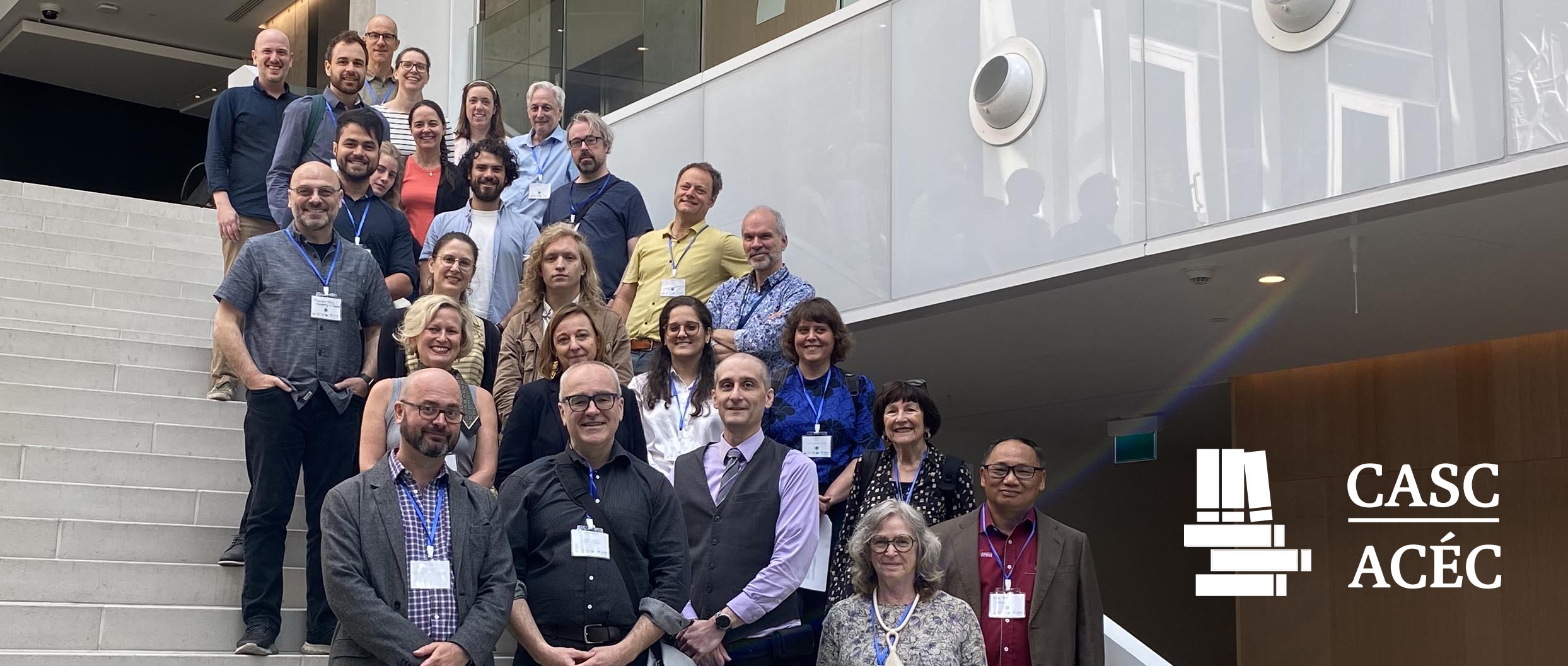“A Silent Transformation” – An Interview with the Film’s Co-Directors
A Silent Transformation is a film about co-ops. Simple as that. If you read the most recent CASC newsletter then you know all about it. Made over four years and directed by Ontario based filmmakers; Simon Brothers, Mark Preston, Luke Mistruzzi, and Anton Smolski – A Silent Transformation is equal parts history lesson and a champion of contemporary community efforts. Want to learn more about the film and how you might be able to see it? Get in touch at cooperative@powerlinefilms.com. You can also watch its trailer here: https://vimeo.com/229041971
For now here’s a quick Q+A with the film’s co-directors.
- What inspired the film?
The film was inspired by some of the previous work Powerline Films (the production company behind A Silent Transformation) had done with various Ontario-based co-operatives. This often forgotten but highly successful business model seemed like a fascinating jumping off point for a much larger conversation. The political impetus for the film was given by the experience of one of the co-creators with the Occupy movement. Which had for an intense moment focussed public attention on growing inequality and demanded systemic change. Although the Occupy movement receded from the headlines, you can see its impact in more places than you would expect.
So A Silent Transformation set out to explore the co-operative self-help efforts of diverse communities across the Province of Ontario. From skateboarders to farmers to cinema goers, members of co-operative enterprises are sowing the seeds of economic democracy, global solidarity, and a new popular movement to transform society!
- What did you learn while making it? What surprised you?
The co-operative sector is incredibly diverse. There are small local co-ops, started by activists. There are well-established multi-billion dollar co-operatives that have their own oil refineries. There are national consumer co-ops that have millions of members across Canada. And there are tiny credit unions that cater to a local ethnic community. Any given co-op may comprise individual members who hold very different values and political views. Some may stress the importance of the business aspect of co-operation or its social goals. If a co-operative is to succeed it needs this multitude of views to find a balance appropriate to the situation.
- Favourite moments during the production? In the film?
Some of the favourite moments on the production were, after everything had been arranged, arriving on at a given co-operative for the day’s shoot, and meeting all the different people that run the enterprise. It was amazing to experience in conversation the depth and the practical intellect of these diverse individuals.
The film includes such a variety of subject matter; from working co-ops to interviews with internationally-regarded intellectuals, to rich visual and archival materials, every audience member can find something to inspire and challenge themselves in the work.
- What is the film looking to achieve?
The primary task of A Silent Transformation is to explore the co-operative enterprise
model and its transformative potential. It is meant to engage the viewers with new ideas and move them to action. The most effective way to do this is through a community screening. Community screenings can bring together activists, organizers and professionals and foster important social links crucial for collective action. We really want young people to see the film as well – young people need to know that change is possible. We want to galvanize the audience to be the change they want to see in the world!
- How can teachers use the film in their classrooms?
We have produced two versions of the film. A theatrical cut (70 min) and an educational version (55 min). The two edits include the same on-the-ground community stories and provide the same discussion of the co-operative enterprise model, but the feature goes into extra detail about the contemporary social and economic contexts in which co-operation takes place. Both versions are modular in structure so it is easy to isolate sections for short screenings as lead-ins on different topics. We also provide discussion questions that are excellent at sparking debate in class. Whether you are an educator or a co-op practitioner or simply a community member that are interested in the co-operative model, you can host your own screening! This screening guide has all the important information on how to do that.



Leave a Reply
You must be logged in to post a comment.